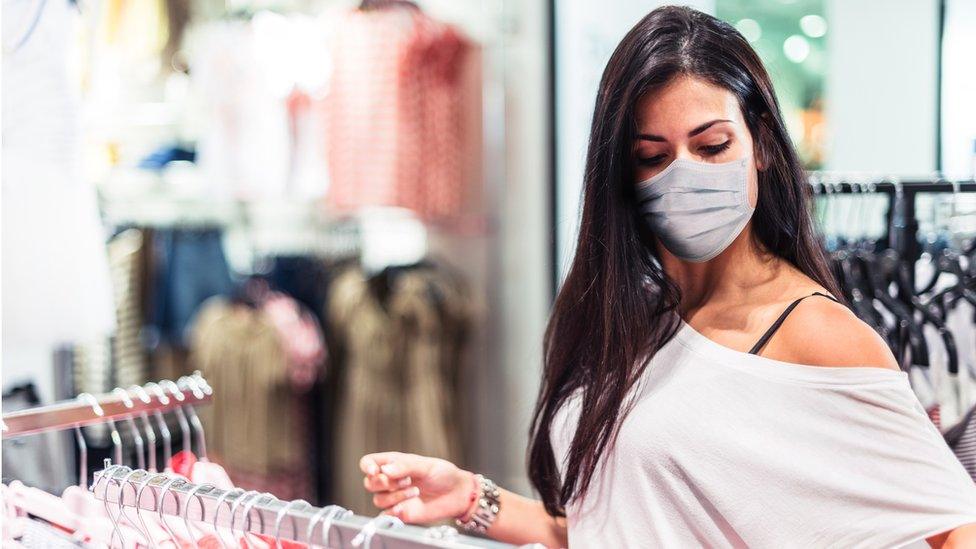Coronavirus: What's it like to be shielding during pandemic?
- Published
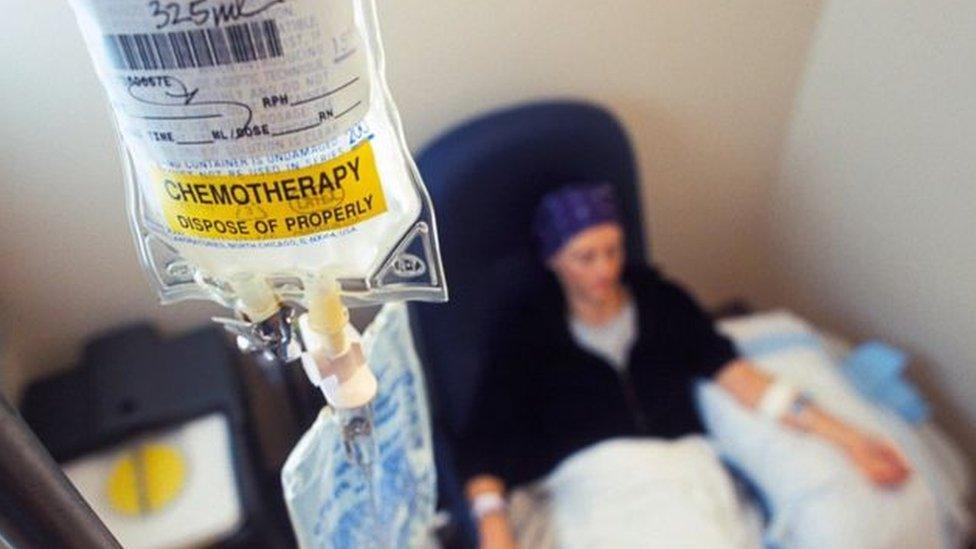
More than 80,000 people with a range of health conditions have received letters from the Department of Health advising them to self-isolate and remain indoors for 12 weeks.
But despite the loneliness and other difficulties presented by isolation, many would still be reluctant to venture out.
BBC News NI has spoken to a number of those who have not left the house since March.

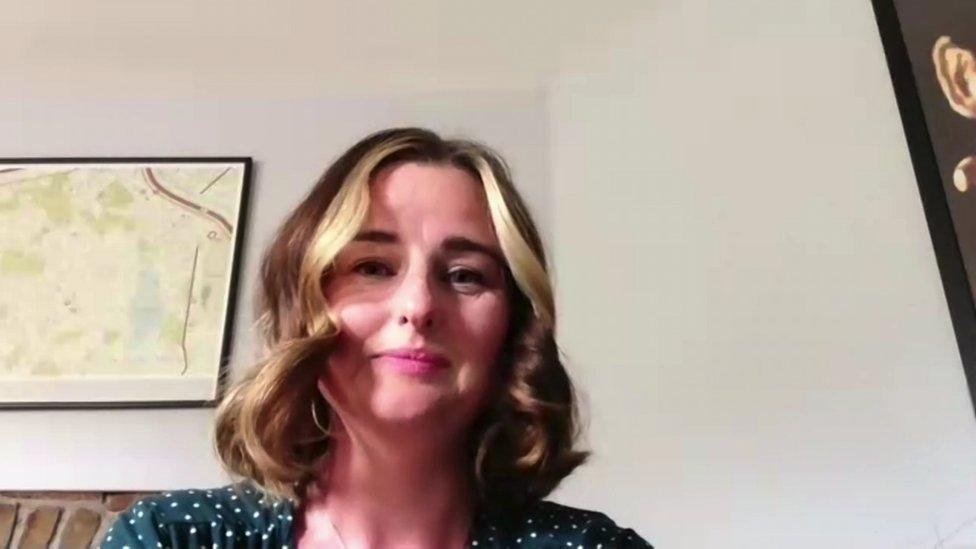
Angela Barry (39), a mother of two from Crumlin, County Antrim, has a rare condition known as neuromyelitisOptica (NMO).
"Nobody knows how I would react because I am immune-suppressed.
"So, we just don't know how I would be if I were to get Covid-19 or to go near anybody with Covid-19 symptoms.
"So, I just have to stay away and that's what I have been doing since the 13 March.
"It has been hard.
"I haven't been to the shops. I have been taking a walk up to the fields and up to the cow sheds with my two little ones because we live in the country.
"It has been tough not being able to go to the shops or see my family.
"My four-year-old has autism, so trying to explain to him has been hard as well. He wants to see his granny and granda, and I want to see my mummy and daddy. But we just can't.
"I do struggle but you have to just get yourself up - you go to bed thinking I am going to have to do the exact same thing as I did today because I can't go anywhere."
"I have been locked down since the 13 March, it's not worth me going anywhere now. I have come this far. I have been through a lot worse.
"I just take every day as it comes now.
"I'd love to go out and see my friends and socially distance from them but the risks are just too high.
"So, it's looking like September for me unfortunately."

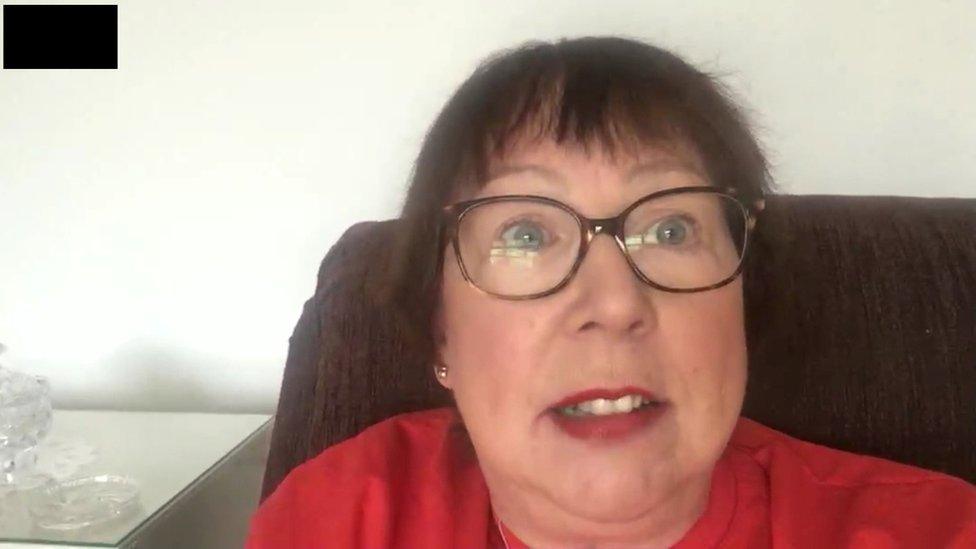
Magi Hogg, 58, from Glengormley, has a lung condition but said she was surprised to receive the Department of Health shielding letter.
"It just made it all too real.
"I knew I had this lung condition but I got by. And it was only seeing it in black and white that the government considers me a vulnerable person.
"I found that very hard to get my head round because I would have classed myself as a person to help others rather than having to depend on people helping me.
"I parked my car on Thursday 19 March and other than taking the bins out I haven't left the house.
"There were a lot of tears and a lot of emotions the first couple of weeks and it didn't take much to trigger the tears.
"The emotional side has settled and I am just asking one day at a time. I have stopped counting the days because I thought that wasn't healthy.
"I will do it as long as it takes because it's better than the alternative of going into hospital."
"I know I can do it.
"There are key workers going to work every day facing all sorts. I am only being asked to sit in my house and it's comfortable."

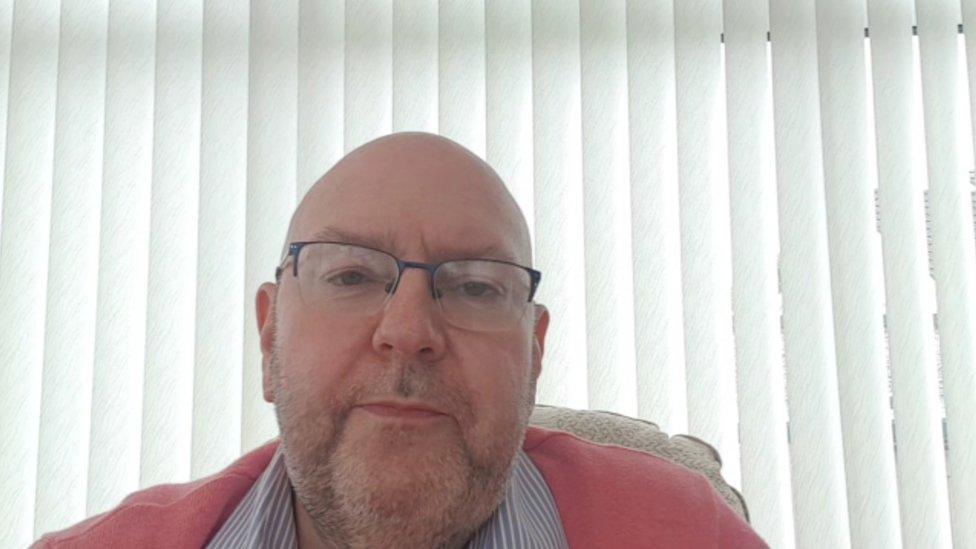
Jim Kilpatrick from Donaghadee had a liver transplant in King's College Hospital in London in 2018, after suffering liver failure. He lives with his wife and daughter.
"Being safe is vitally important for those that are in this position where they are a transplant patient.
"If it's someone who has had heart, kidney, lungs, liver, it doesn't matter, you're a transplant patient and you fall automatically under what the government defines as extremely vulnerable.
"When you think that someone, somewhere has been your donor, the last thing you want to do is put any risk against your continued good health and therefore shielding is the correct thing to do, and I haven't come across any of our patients who have queried that at all.
"When we're retired we tend to do things in a different way.
"We don't have work companions. We have friends, we have family and we have friends that we call on, and when you can't do that, it becomes very difficult.
"When you're in this category, where you need to be extremely careful, it is going to be difficult to go back to the normal things that we did and the way that we did them.
"I'm very pragmatic. We are where we are at the moment. I don't find it difficult, but I know others do.
"It's there for our health and our safety, and if it has to continue for a few more weeks, so be it.
"It just makes the joy at the end of it, whenever we can get back with our family and friends, all the greater."

EASY STEPS: How to keep safe
A SIMPLE GUIDE: What are the symptoms?
CONTAINMENT: What it means to self-isolate
HEALTH MYTHS: The fake advice you should ignore
MAPS AND CHARTS: Visual guide to the outbreak
VIDEO: The 20-second hand wash

- Published12 May 2020
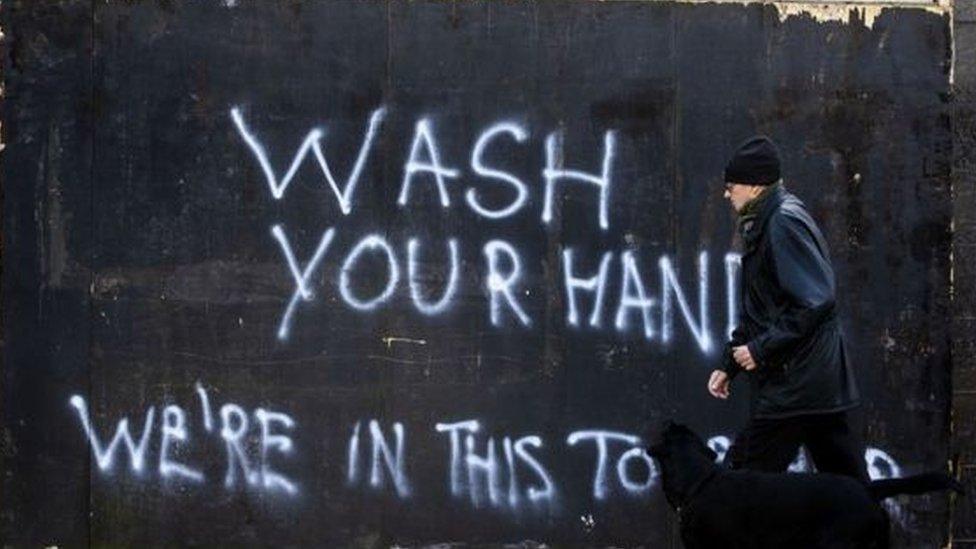
- Published12 May 2020
- Published20 October 2020
